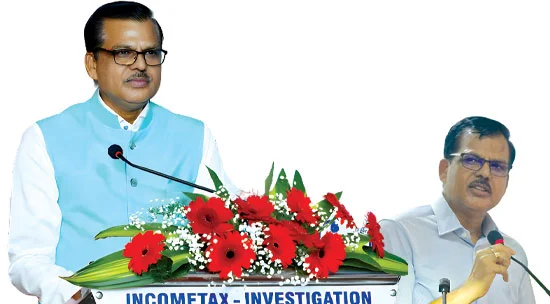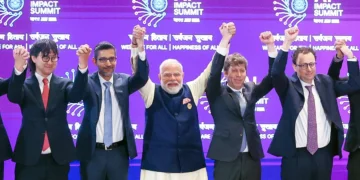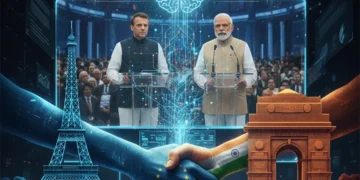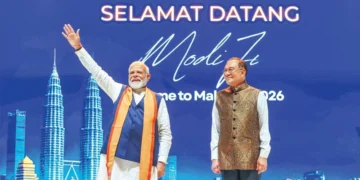Blitz Bureau
NEW DELHI: India’s bureaucracy, often hailed as the ‘steel frame of democracy’, has always carried the weight of governance, policy, and public service on its shoulders. Among its finest officers stands Pratap Singh, IRS, a civil servant whose career epitomises vision, resilience, and transformational leadership.
Currently serving as Director General (Investigation), Income Tax Department, Chennai, Singh has, over three decades, reshaped the contours of revenue administration, s t r e n g t h e n e d citizen trust, and set new benchmarks for tax governance in India. Joining the Indian Revenue Service in 1991, after completing M.Tech at IIT Kanpur, Singh went on to pursue an Executive PG Diploma in Business Management (Alliance University), LLB (Karnataka University), and a Ph.D. (ISEC, Bangalore) – a rare blend of technical, managerial, legal, and policy expertise. His academic rigour translated into a career defined by reformist zeal and institution-building.
From Additional Commissioner in Bengaluru to Principal Commissioner in Gurugram and Faridabad, Singh consistently delivered measurable impact. Under his stewardship, Gurugram’s tax collections rose spectacularly from Rs 18,200 crore in FY 2021-22 to Rs 42,300 crore in FY 2023- 24, a feat achieved alongside pioneering Rs 700-crore infrastructure projects, citizencentric grievance redressal, and green initiatives like Harith Aayakar programme.
In Mumbai, Singh headed the biggest tax commissionerate, managing revenue of over Rs 1,20,000 crore – 12 per cent of the national income tax revenue.
Digital imprint
The I-T Department’s dramatic leap from manual operations in 1991 to near-complete digitisation today carries Singh’s imprint. His contributions to the Centralized Processing Centre (CPC) in Bengaluru, widely admired by international delegations, stand as a model of efficiency and innovation. Singh contributed towards reforms in the following areas:
q Prefilled tax returns, enabling effortless compliance for millions. q The e-verification portal, empowering taxpayers to resolve discrepancies online. q The updated return scheme, easing disputes and widening the tax base. q A faceless assessment and appeals system, hailed as a landmark in transparency. These reforms reduced average refund time to 16 days—sometimes even same-day processing—a radical shift that strengthened trust and positioned India as a rulemaker, not rule-taker, in global tax diplomacy.
Thought leader
Beyond administration, Singh is also a thinker and author. His widely discussed book India’s Odyssey, launched by India’s G20 Sherpa Amitabh Kant last year, presents a sweeping narrative of India’s civilisational heritage, developmental path, and vision to emerge as a superpower by 2047.
As a sought-after voice on platforms like ET Now, Digital Bharat, and Growth Summits, Singh has argued for aligning tax policy with innovation, entrepreneurship, and global competitiveness. He has also participated in various training programmes abroad. Singh’s service extends far beyond tax administration.
As a founding member of the Golf Federation of India and ARSP Foundation, he has promoted sports diplomacy, youth empowerment, and South Asian cooperation. A marathon runner and environmental advocate, he embodies the ethos of balance – between governance and society, growth and sustainability.
The transformation of the Income Tax Department under Singh’s leadership is more than an administrative success; it is a cornerstone of India’s march towards Viksit Bharat @2047. By cutting compliance costs, expanding the taxpayer base, digitising operations, and creating taxpayer-friendly systems, Singh has redefined the relationship between citizen and state.
The results are striking:
q Tax base expanded to 11 crore effective taxpayers. q Tax collections soared to Rs 19.58 lakh crore in 2023–24. These achievements, while statistical in nature, signify something deeper – the forging of trust, transparency, and fairness as foundations of governance.
Outstanding legacy
What sets Singh apart is his ability to combine policy vision with operational detail, technology with empathy, and governance with trust-building. He represents the finest ideal of the civil service: impartial, reformist, and deeply committed to nation-building.
As India aspires to claim its place as a developed nation by 2047, it is officers like Pratap Singh – visionary yet grounded, reformist yet humane – who will carry the steel frame forward. His journey proves that the bureaucracy, when led with conviction, remains not just the steel frame of democracy but its beating heart.


























